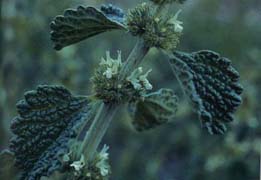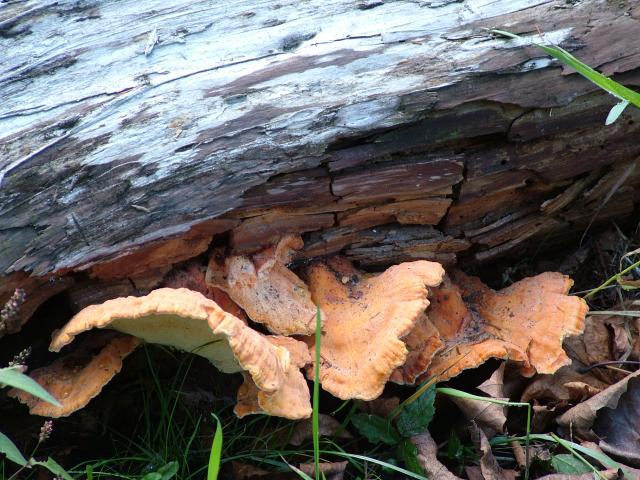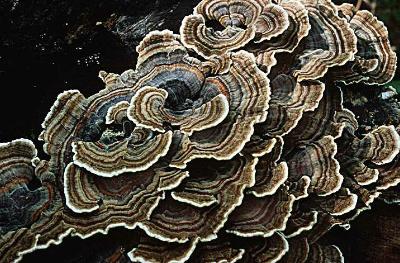User Login |
INTRODUCTION TO FUTURE FUNGIChicken of the Woods
LATIN NAME: Polyporus sulphureus FAMILY: Polyporaceae DESCRIPTION: Overlapping clusters of bright orange-yellow caps with sulphur-yellow pores underneath EDIBILITY: Choice edible BODY SYSTEM AFFILIATIONS: Unknown INDICATIONS: Antibacterial Pearl Oyster: www.botit.botany.wisc.edu LATIN NAME: Pleurotus ostreotus FAMILY: Tricholomataceae DESCRIPTION: Large whitish to tan caps with whitish gills and an off-center, whitish stalk EDIBILITY: Choice edible; tastes like oysters or shrimp BODY SYSTEM AFFILIATIONS: Nervous System, Cariovascular System INDICATIONS: Cardiac, Antiviral, Antibacterial, Cholesterol reducing Turkey Tail: www.botit.botany.wisc.edu LATIN NAME: Trametes versicolor FAMILY: Overlapping with leathery, thin caps DESCRIPTION: Stalkless, overlapping, thin, leathery caps with multicolored rings alternating hairy and smooth; white to yellow pores EDIBILITY: not particularly edible, but can be chewed on for nutrients and flavor (it has been dubbed 'hikers chewing gum') BODY SYSTEM AFFILIATIONS: Hipatic System, Urinary System, Immune System INDICATIONS: Antiviral, Antitoxidant, Anti-tumor, Antibacterial
Lion's Manes: http://www.davismushroom.org/images/Hericium%20erinaceus.jpg LATIN NAME: Hericium erinaceous
FAMILY: Hydnaceae DESCRIPTION: The fruiting body is a mass of many small, white, closely packed spines coming from a tough base. It grows on the wounds of living hardwoods, or the ends of fallen logs, favoring oak EDIBILITY: choice edible; tastes like lobster BODY SYSTEM AFFILIATIONS: immune system, nervous system, circulatory system INDICATIONS: anti-inflammatory, anti-bacterial, anti-tumor, nerve tonic
|




